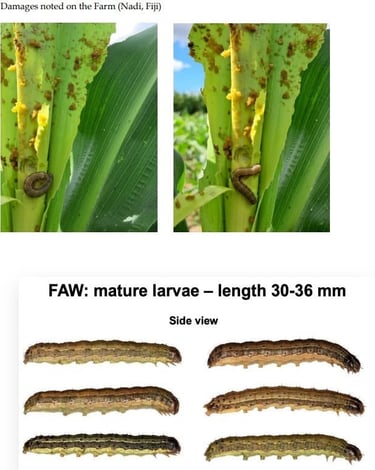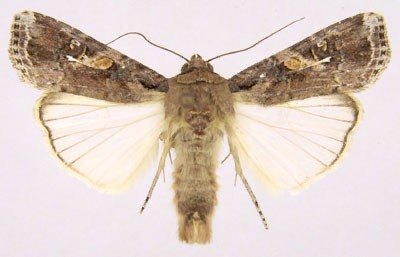Fall Armyworm Detected in Fiji, BAF Launches Emergency Response
FIJI NEWS


The Biosecurity Authority of Fiji (BAF) has confirmed the first official detection of the Fall Armyworm (Spodoptera frugiperda) in the country, raising concerns over its potential impact on Fiji’s food security and economy.
The invasive pest was identified during a targeted field surveillance operation on 23 April 2025 at a maize farm in Uciwai, Nadi, and later verified through laboratory diagnostics.
Originally native to the Americas, the Fall Armyworm has rapidly spread across Africa, Asia, and the Pacific in recent years. The larvae are known for their destructive feeding habits, damaging the leaves, stems, and reproductive parts of over 80 plant species, including staple crops such as maize, rice, sugarcane, and vegetables.
In response to the detection, BAF has activated its Plant Pest Emergency Response Plan. Current measures include a nationwide delimiting surveillance to determine the extent of the spread, the deployment of pheromone traps and visual scouting, and the implementation of quarantine and containment protocols to restrict the movement of potentially infested plant material.
Farmers and the general public are being urged to remain vigilant and report any suspected signs of infestation. Key signs of Fall Armyworm presence include caterpillars with a distinctive inverted “Y” marking on their heads, whorl feeding damage on maize, ragged holes on leaves, and visible frass (insect waste).
Suspected sightings should be reported immediately via the BAF hotline at 5984, or to the nearest BAF office or the Ministry of Agriculture and Waterways office.

